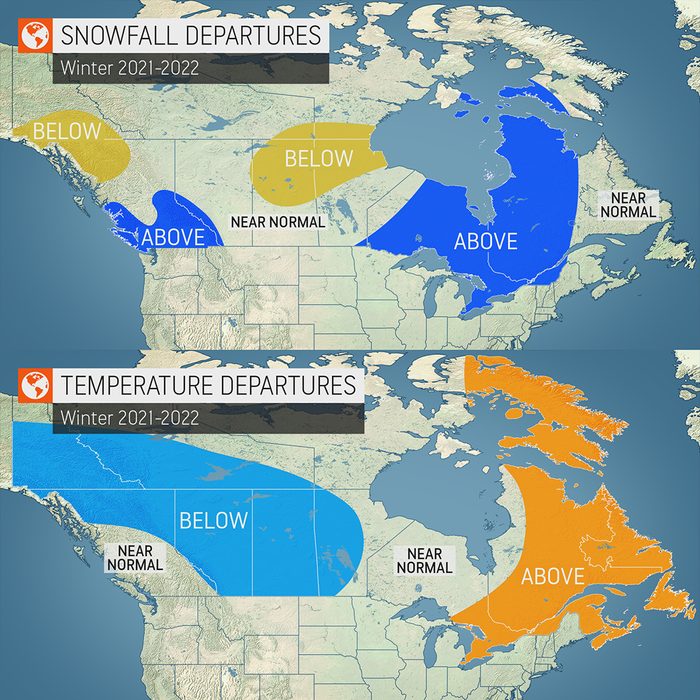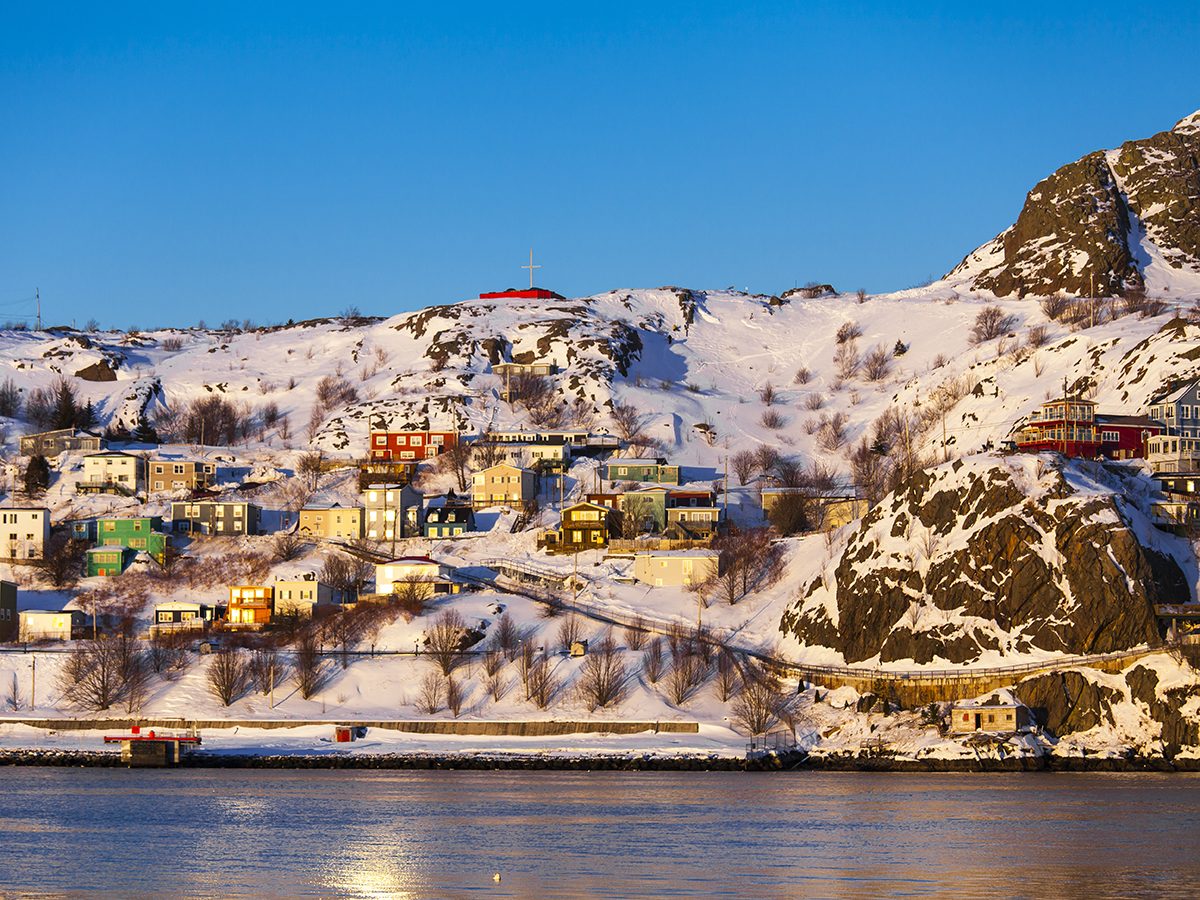
A sneak peek at the winter forecast across Canada
Let it snow—or let it rain? This winter, many Canadians will need to prepare for both scenarios, and that instability is largely down to something happening thousands of kilometres away, smack in the middle of the Pacific Ocean.
In mid-October, the National Oceanic and Atmospheric Administration (NOAA) officially identified a “La Niña” phase. This is a phenomenon that occurs every three to five years, in which sea surface temperatures in the central Pacific fall to below-average levels, triggering an amplified polar jet stream. This results in colder than average winter temperatures across Canada, particularly in the western provinces, and more frequent storms.
With those La Niña conditions in mind, the meteorologists at AccuWeather have modelled their annual long-range forecast. Here’s a region-by-region look at what’s expected this winter in Canada.

Winter forecast for British Columbia: Dust off your boots and umbrellas
“The upcoming winter is expected to be fairly stormy from southern British Columbia through the Canadian Rockies with many opportunities for significant rainfall and strong winds along the coast,” says AccuWeather meteorologist Brett Anderson. He expects to see abundant snowfall throughout the Coastal Range of B.C. and across the Rocky Mountains into Alberta. (Great news for ski country!)
Southern British Columbia is expected to get more precipitation than usual, which should help relieve the dangerously dry conditions in that part of the province. Northern B.C. and the Yukon, on the other hand, may see less snowfall than usual.
Don’t miss this stunning gallery of Canadian winter photography.

Winter forecast for the Prairies: Baby, it’s cold outside!
Anderson says this winter will likely see the polar vortex displaced from its normal position above the North Pole, shifting down over the Prairies and central Canada. “I believe we may see at least three extreme blasts of bitterly cold air dropping down into the southern Prairies this winter,” Anderson says, noting that the 2021-2022 season will likely be the coldest in southern Alberta and Saskatchewan since the frigid winter of 2013-2014. In fact, the average temperature will be about two degrees lower than usual, and temperatures of -30° C are possible. (Brrr!)
While a long, cold winter isn’t everyone’s cup of tea, this is great news for outdoor hockey players and ice fishers. And for the rest of us? Thank goodness for warm drinks and good books!
Find out eight ways to trick your body into feeling warmer on a frigid day.

Winter forecast for Ontario and Quebec: A winter wonderland
If your idea of the perfect winter involves mild temperatures with plenty of snow, you’re in luck—if you live in the Toronto-Montreal corridor, that is.
“While this winter does not look all that cold from Ontario to Quebec, it will be cold enough to support many opportunities for significant snowfall this winter,” Anderson says. “I expect a favourable winter with solid snow bases across much of ski country in eastern Canada and especially across Quebec.”
Although this is great news for skiers, sledders, skaters and snowboarders, it also comes with a word of warning. Those higher temperatures may result in below-average ice coverage on the Great Lakes and other bodies of water, so you’ll need to be extra cautious before venturing out onto any seemingly frozen surface.
Check out 10 cool facts about the coldest places in Canada.

Winter forecast for the Atlantic provinces: In like a lamb, out like a lion
It’s going to be a cold and stormy winter in Atlantic Canada, particularly near the end of the season. “The greatest threat for powerful coastal storms in Atlantic Canada will come in February,” Anderson says. “The clash of advancing cold air from the west with the abnormally warm waters of the northwest Atlantic may lead to some rapidly developing storms with a lot of wind and heavy precipitation from the Maritimes to Newfoundland.”
However, early winter on the east coast is expected to be milder than usual—something that should have a positive impact on your energy bill. “This pattern will likely favour more cloud cover across eastern Canada this winter with more mild nights and less demand for heating,” Anderson says.
In like a lamb, out like a lion? It’s not quite the usual saying, but that’s what to expect on Canada’s east coast this winter. Stay cozy—spring will be here before you know it!
Now that you know the winter forecast in Canada, find out what it was like on the coldest day in Canadian history.